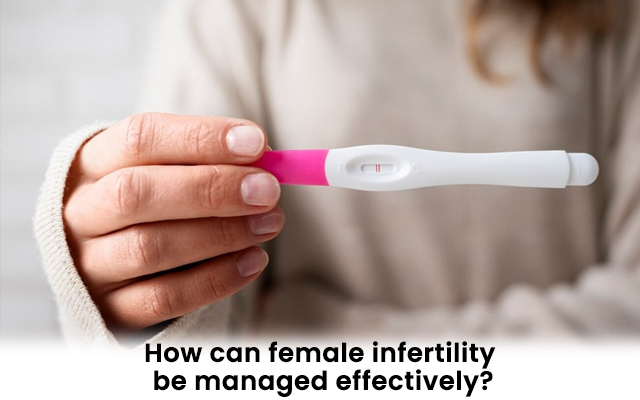Dealing with infertility can be emotionally challenging, but there are effective ways to manage it and increase your chances of conceiving. Female infertility management requires a combination of treatments tailored to address the underlying cause, lifestyle adjustments, and supportive care. Here’s an overview of how infertility can be managed effectively.
Understanding the Cause of Infertility
The first step in female infertility management is understanding the root cause. Infertility can stem from several factors, including hormonal imbalances, ovulation disorders, blocked fallopian tubes, or endometriosis. A gynecologist specializing in infertility will conduct thorough assessments, which may include blood tests, ultrasound, and possibly more specialized procedures like laparoscopy, to pinpoint the specific reason for infertility.
Treatment Options for Female Infertility
Once the cause is identified, your gynecologist can recommend appropriate treatment options. Here are some commonly used methods:
- Medications for Ovulation Stimulation: For women with ovulation issues, medications like Clomiphene Citrate or Gonadotropins can stimulate the ovaries to release eggs. These medications are often the first line of treatment in female infertility management and can be highly effective.
- Intrauterine Insemination (IUI): In cases where the male partner has a low sperm count or the woman has mild endometriosis, IUI may be recommended. This involves placing prepared sperm directly into the uterus during ovulation to increase the chances of fertilization.
- In Vitro Fertilization (IVF): IVF is one of the most successful treatments for infertility and is often recommended if other methods are unsuccessful. During IVF, eggs are fertilized with sperm in a lab, and then the resulting embryo is transferred to the uterus.
- Surgical Interventions: For some women, surgical options like laparoscopy may be needed to remove fibroids, endometriosis tissue, or blockages in the fallopian tubes. Surgery can help restore normal function, improving the chances of conception.
Lifestyle Changes and Natural Approaches
Lifestyle adjustments can play a significant role in female infertility management. Factors such as diet, exercise, stress, and sleep are critical to overall reproductive health.
- Maintain a Balanced Diet: A diet rich in fruits, vegetables, whole grains, and lean proteins supports hormonal health and improves fertility. Avoiding excessive caffeine, sugar, and processed foods is also recommended.
- Exercise Regularly but Moderately: While staying active is beneficial, excessive exercise can disrupt hormone levels. Aim for moderate activities like walking, yoga, or swimming to maintain a healthy weight, as obesity and being underweight can impact fertility.
- Manage Stress Levels: Infertility can be stressful, and high-stress levels can negatively affect hormones. Stress-reduction techniques like meditation, breathing exercises, and counseling can be very helpful in managing stress related to infertility.
Emotional Support and Counseling
Infertility can be emotionally taxing, and many women find it beneficial to seek support from counselors or support groups. Talking to a professional or sharing your experiences with others in similar situations can reduce feelings of isolation and stress, both of which can positively impact fertility.
Conclusion
Female infertility is a common issue, but there are various ways to manage it effectively with the right combination of medical treatment, lifestyle changes, and emotional support. Consulting a specialized gynecologist in female infertility management can help you understand the best options for your unique situation. With early intervention and personalized care, many women find success in their journey toward conception.
 8282867107
8282867107 sukhamoy83@gmail.com
sukhamoy83@gmail.com
